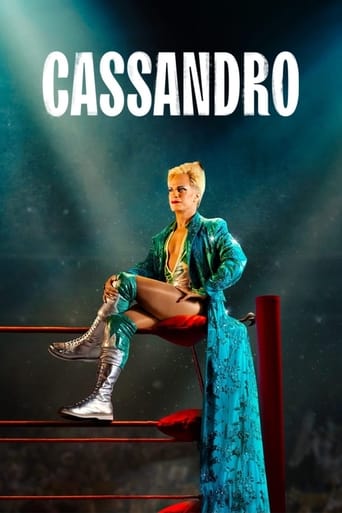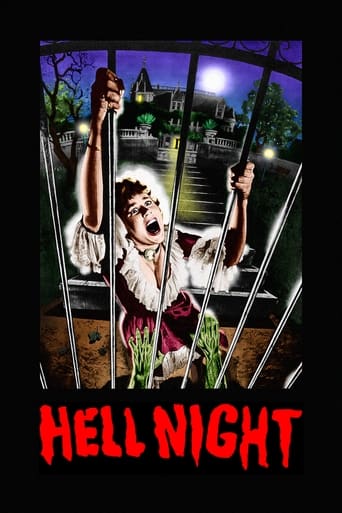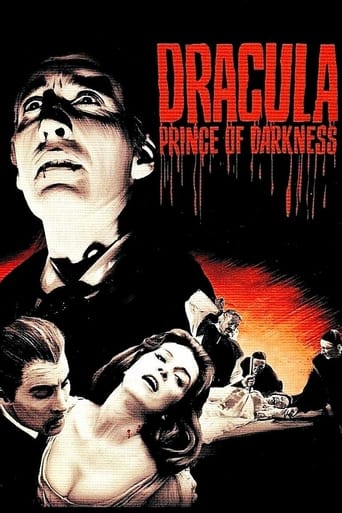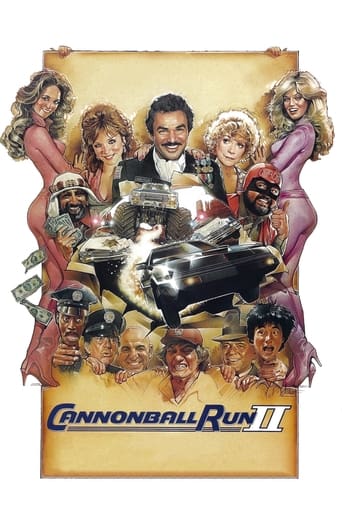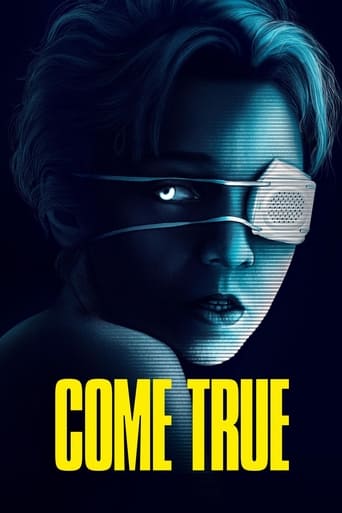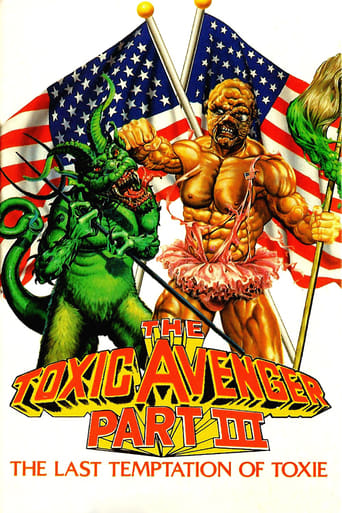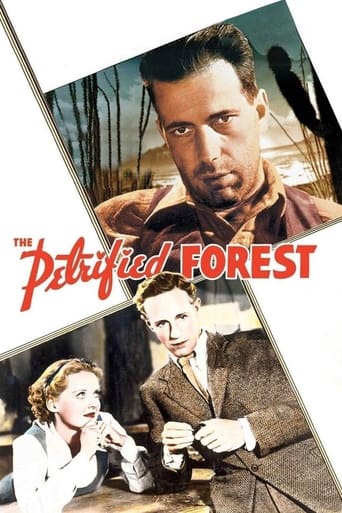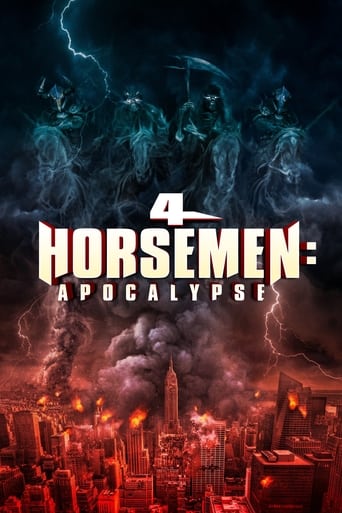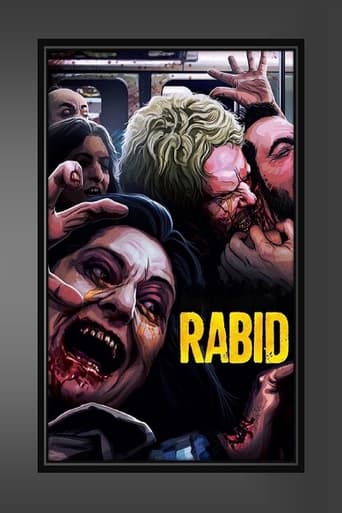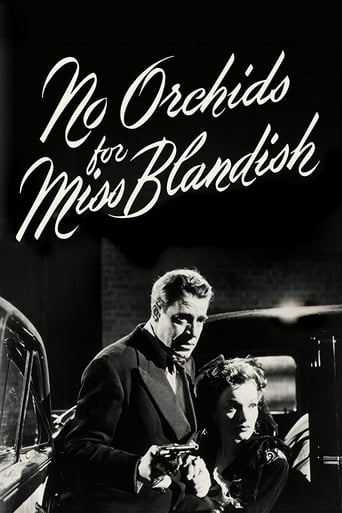


No Orchids for Miss Blandish
Filmed in England but set in New York, No Orchids For Miss Blandish tells of a sheltered heiress who is abducted on her wedding night by a trio of cheap hoods, in what starts out as a jewel robbery and turns into a kidnapping/murder when one of them kills the bridegroom. More mayhem ensues as the three kidnappers soon end up dead.
-
- Cast:
- Jack La Rue , Hugh McDermott , Linden Travers , Walter Crisham , MacDonald Parke , Danny Green , Charles Goldner


Similar titles




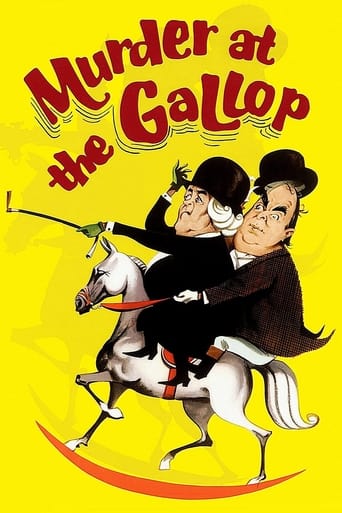
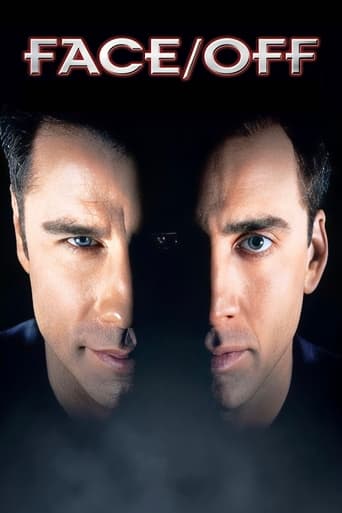

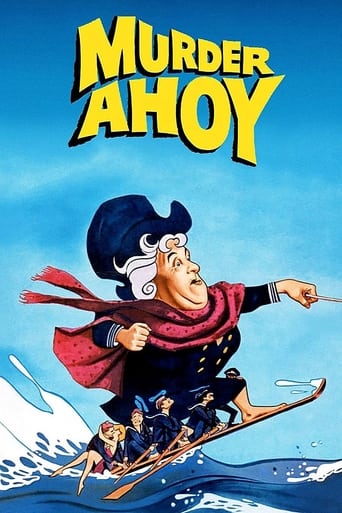


Reviews
I think this is a new genre that they're all sort of working their way through it and haven't got all the kinks worked out yet but it's a genre that works for me.
It’s not bad or unwatchable but despite the amplitude of the spectacle, the end result is underwhelming.
This movie feels like it was made purely to piss off people who want good shows
By the time the dramatic fireworks start popping off, each one feels earned.
At the time this was released, some 65 years ago, the critics mauled it and not just that, they were furious. The eminent reviewer, Dillys Powell, suggested it should have been awarded a 'D' certificate, for 'disgusting' and the censor later apologised for having mislead the public into seeing something they perhaps shouldn't have. Monthly Film Bulletin used the words, 'sickening', 'brutality','perversion' and 'sex & sadism'. Well, needless to say it doesn't live up to all that, though a tender reviewer on this site in 2006 slammed it as 'the toughest film I have seen'. It's British and based upon the infamous book of the same title by the Brit, James Hadley Chase and well worth seeing. You will be surprised at the violence and sexual reference, considering the time, but you will survive.
"The most sickening exhibition of brutality, perversion, sex and sadism ever to be shown on a cinema screen." Thus did The Monthly Film Bulletin judge St John Clowe's film adaptation of No Orchids For Miss Blandish (aka: Black Dice) upon its appearance in 1948, reflecting the almost universal shock and disapproval of the British critical fraternity. Not until the equally vehement rejection of Peeping Tom, over a decade later, would a film face such an onslaught. Audiences, it must be said, found the movie to their liking despite, or because of, the opprobrium and where it was shown, takings were excellent.Violent and (for it's time) sexually suggestive, lurid and melodramatic, nothing St John Clowe's movie contained pleased critics more happy with a realistic tradition of filmmaking, or middle-class literary adaptations for discriminating audiences. In retrospect the categorisation of No Orchids For Miss Blandish seems less problematical. Neither sophisticated literary screen transposition nor completely convincing gangster piece, laced with titillation, and with roots in trash culture, These days the movie is better seen as a landmark of British crime exploitation cinema.At its heart lays a love story: that between Slim Grisson and Miss Blandish. It's a tragic tale too; not just because of the end which awaits the couple, but also in that Grisson is shown as being a fervent, secret admirer of the heiress from the very first scene (his distinctive double dice emblem on the card accompanying flowers) and so, ultimately, is just as much a victim of events as she. His tragedy is that he soon finds himself overseeing the kidnapping of the woman he loves, while Miss Blandish has the misfortune of falling for someone entirely unsuitable, socially or morally.But without the sexual experience he brings she would, it seems, be condemned to eternal frigidity. It is no accident that, early on, her fiancé refers to the "ice in her veins" which needs 'melting'. Indeed one of the many things critics found unacceptable in the movie was the depiction of a woman's sexual awakening, particularly when tied to a liaison out of her class - something miles away from the usual Noel Coward-type drawing room infatuation. It's a scenario helped by some sensitive direction by St John Clowe, in a work characterised over all by some fluid camera-work.Some have criticised the director for clumsiness, but I can't see it. To give a standout example: although we know Grisson is 'stuck' on the heiress, nothing is said between them, except for a barely perceptible nod at her by the hoodlum after their first shock meeting. At a crucial moment later St John Clowe has Grisson, clearly thinking of the woman, walk slowly up his nightclub stairs, a fairly long crane shot. His impassive face is briefly superimposed onto hers. Then in the love scene which follows she leaves him, wavers, and comes back after a tense delay - events mostly off-screen. We still do not see them together, merely (for the second time) some orchids, and his words of relief spoken over the held flower shot. For a film so explicit elsewhere, the restraint and sensitivity of direction here is striking.As Slim Grisson, Jack La Rue is impressive; more so when one remembers that it is almost half an hour before he is first seen on screen at all. A performance over-indebted to George Raft maybe - his habitual dice throwing recalling the American star's famous coin-tossing trademark - but still touching as a love-lorn thug and whose regular lack of expression and stolid soulfulness says more than any amount of mugging could do. As Miss Blandish, Linden Travers has attracted good words, too.Others in the cast, even allowing for the variable American accents, are admittedly less strong. Ma Grisson (Lilli Molnar), who starts out, Ma Barker-fashion, as the leader of the gang, is less menacing that one might have wished; 'Doc' the Sydney Greenstreet-type among the supporting cast is too much of a stereotype to be convincing. However, mention ought to be made of Walter Crisham's Eddie, Grisson's frightening henchman, a very intimidating and malevolent presence. While some aspects of No Orchids For Miss Blandish have been ridiculed, the budget was obviously quite a reasonable one; the nightclub fairly expansive and convincing for instance, allowing the director a chance for multiple set-ups.Of course the club, Grisson, and his followers are a world away from Miss Blandish's previous social circle. In a way characteristic of British noir and thrillers, the film has a firm idea of class; not only in the separation of crooks and toffs, but upstairs and downstairs (the working class lovers overhearing the conversation of their betters from the basement, at the start), as well. Even the underworld has its social structure, one which the 'success' of the Grisson gang is contrasted to the smaller group doing the initial kidnapping. Only love, it seems, can cross these boundaries, but then such romance is fraught with risk. For Miss Blandish, her new relationship brings 'freedom', this from the "first man I've ever met" - a slight emphasis on 'man' when she speaks, implying the anaemia of the class she has just rejected.To those who wish to discover what all the fuss was about, I can say that the film may be variable, but entertaining and memorable. It's certainly an important document of Britain's cinematic underbelly. No plaudits for Miss Blandish perhaps, but no outright dismissal here either.
No Orchids For Miss Blandish was released in 1948. At that time, films tended not to contain violence or sexual innuendo of any particular note but this one had plenty of both. As a result, the critics at the time were quick to unleash howls of derision in the film's direction. "It has all the morals of an alley cat and the sweetness of a sewer" protested The Observer; "the most sickening exhibition of brutality, perversion, sex and sadism ever to be shown on a cinema screen" was the verdict of The Monthly Film Bulletin. "The worst film I have ever seen" cried the Sunday Express, while a British politician (and future prime minister) named Harold Wilson scoffed with indignation and declared that there would be "No Oscars for Miss Blandish!!"Taking all this into account, it would be reasonable to assume that No Orchids For Miss Blandish is one of the worst films of all-time. That's certainly what I was expecting when I sat down to watch it. Imagine my surprise when it turned out to be quite good! What we have here is a film that was a little ahead of its time too violent and ground-breaking for its contemporaries to stomach, but in retrospect a well-made gangster story that dares to rub the audience's face in filth and unpleasantness.Ultra rich heiress Miss Blandish (Linden Travers) is kidnapped one night whilst out driving with her fiancée. The abduction is masterminded by a bunch of small-time hoods who want to get hold of a priceless necklace she wears, but the heist gets out of hand and several of the gang members end up killing each other. When the bloodshed is over, Miss Blandish finds herself at the mercy of opportunist Bailey (Leslie Bradley). Later, though, the much more powerful and savage Grisson gang learn of her whereabouts. The gang is ostensibly led by odious old matriarch Ma Grisson (Lila Molnar), but in reality the true gang leader is her psychopathic and much-feared son, Slim Grisson (Jack La Rue). Even though Slim is utterly ruthless and a born killer, Miss Blandish finds herself falling for his brutal charm. She persuades him to return the necklace to her father along with a note explaining that she is staying with Slim of her own free will. However, the other members of the Grisson gang start to get nervous as Slim's behaviour grows clouded by his love life, and Miss Blandish's father refuses to believe that his daughter could possibly be happy when she's shacked-up with a sadistic killer. As the odd couple prepare to run away and start a new life together, the fates conspire to ruin their dreams .No Orchids For Miss Blandish is good stuff. La Rue plays Slim with just the right balance of toughness and elegance, while Walter Crisham, MacDonald Parke and Lila Molnar all etch memorable portrayals as the other main heavies. Travers rounds off the cast in a sexy and appealing turn as the squeaky-clean heroine who gradually learns that she likes it rough. The film is let down a little by the fact that most of the cast are British actors pretending to be Americans, complete with unconvincing accents. Also, the ease and speed with which Miss Blandish falls in love with her captor is a plot development that takes rather a lot of swallowing. But when the actors engage in their frequent snarling exchanges, and the violent action kicks into gear, this is enthralling stuff! If you thought old British films from the 1940s were all sweetness and light think again!!!
Considering the appalling state of Britain in 1947 when the film was made, it was a valiant attempt to copy such magnificently noir American films like "This Gun For Hire" and "The Blue Dahlia". That's about the best one could say about the film. However, it failed very badly, even considering how long ago it was made. It wasn't the cinematography, the camera-work or the sets that let it down - they ranged from acceptable to quite good - it was the casting. Obviously made on a shoestring budget, the actors almost without exception couldn't act; sometimes laughably obviously - and certainly not using American accents. Playing the heavies that they were aping from the Hollywood product they had studied - Alan Ladd, Bogey, Gloria Graham, Shelley Winters, et al - they resorted to the sneering rather than the menacing. The violence that the critics objected to was certainly there - innocent by today's standards - but the performances, the dialogue and even the body language, to say the least, were strictly out of amateur rep. I'm not at all surprised that the director never directed again.

